Modern agriculture has been revolutionized with great innovations in crop science, seed technology, soil science, meteorology, agricultural engineering and agricultural chemistry. Agricultural chemistry has undoubtedly increased crop yield in all corners of the globe. It has emerged as one of the most powerful arms of modern agricultural practices.
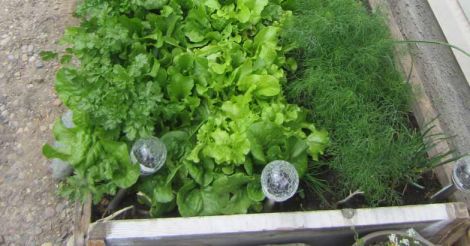 Organic vegetable production. Photo: Saikat Kumar Basu
Organic vegetable production. Photo: Saikat Kumar BasuSimilarly, agricultural chemicals (agro-chemicals) have important stake in ensuring crop safety against various pests (insects, mollusks, algae, fungi, bacteria and virus etc), contributed towards significant increase in crop yield in early maturity stages and in rapid harvest, artificial ripening of several fruits, and added shelf life for agricultural produce making long transportation safer and reducing damage, to mention a few.
Such modern practices have been ensuring global food security to some extent on one hand and eliminating poverty contributing to agricultural self-sufficiency on the other. Today, agriculture is slowly transforming into a major global industry that earns revenues in billions of dollars, provides employment for millions of people, at least theoretically, reduces the perpetual risk of food shortages, handles perennial issues like food crisis with great confidence and controls the dangers of crop failures around the globe with mixed results in developed and developing countries alike.
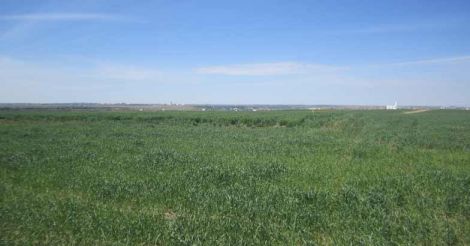 Organic crop production. Photo: Saikat Kumar Basu
Organic crop production. Photo: Saikat Kumar BasuHowever, with big benefits come great risks. Modern agriculture, while being revolutionized by agro-chemicals, has also been jeopardized by the unrestricted, irresponsible use and unwanted over-application of the various agro-chemicals, particularly chemical pesticides and synthetic fertilizers. This has been negatively impacting the local ecosystems and the environment in a serious manner across the planet. To ensure crop protection, farmers around the world have been shifting more and more towards chemical application based agri-practices and thereby subjecting our environment through a newly emergent form of global pollution called agricultural pollution.
The over application of various synthetic fertilizers for bumper crop growth and yield is pushing farmers to try and adopt to various chemical fertilizers that are solely transforming the soil microbiota, microflora and soil characters. In several instances, pH of the soil has been altered drastically, to the extent that a particular field is sometimes abandoned from agricultural practices. Beneficial soil microbes have been killed, depleted or significantly reduced, giving rise to new pests that have been impacting crop yield, crop growth and crop maturity. The reclamation of such soils has been difficult and often too expensive to afford for the farmers impacted. Furthermore, several of the agro-chemicals (particularly the highly toxic pesticides) used on crops have long life in the natural environment and degrade slowly over time.
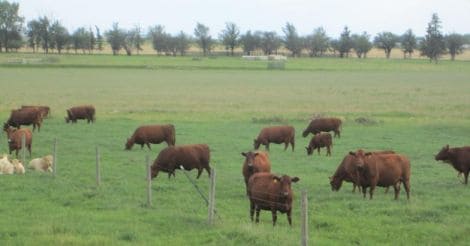 Organic production system for lifestock. Photo: Saikat Kumar Basu
Organic production system for lifestock. Photo: Saikat Kumar BasuThese chemical residues sitting in the ecosystem often percolate deep into the ground water table, polluting ground water resources. The chemicals are often washed away by irrigation or rain water, depositing them in artificial and natural water bodies, thereby causing eutrophication in locally available fresh water resources. Often during the process of natural bio-degradation, many of these complex and toxic chemicals are transformed into even higher toxic forms that enter into our food chains and food webs through the process of biomagnification.
Agriculture practiced adjoining coastal and estuarine area is similarly polluting marine water resulting in drastic negative changes in freshwater, estuarine and marine ecosystems. Thus, modern chemical-based agriculture is impacting the lives of humans, domestic animals, and wildlife alike. The application of such broad based pesticides is also killing non-target species like farmer-friendly insect pollinators, bats, birds in the agricultural fields as well as water bodies, marine vertebrates, and invertebrates. Significant sources of chemical pollution in our fresh and saltwater systems can now be easily attributed to the extensive global use of agro-chemicals.
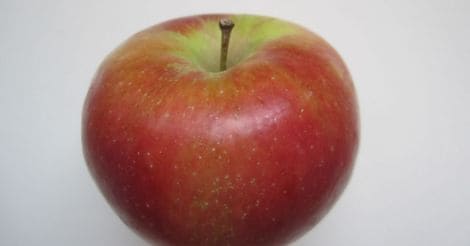 An organically produced apple. Photo: Saikat Kumar Basu
An organically produced apple. Photo: Saikat Kumar BasuUnder these circumstances, organic agriculture (completely synthetic agro-chemical free agricultural practice) appears to be a viable and sustainable alternative. Although newly emergent and limited in scope, organic agriculture has been rapidly attracting attention around the world. Produce generated through organic agricultural system has been returning higher economic returns to the organic farmers. Customers concerned about pesticides and other harmful and aggressive chemical residues in agri-products are turning towards organic produce for better value for their money and for better health security. Separate sections of organic produce with special tags and higher values are now available in shopping malls and markets in most developing and developed countries. Several small countries are shifting from chemical-based agricultural practices towards non-conventional, nature based organic agriculture to capture the niche market of organic produce and their dedicated customer groups ready to pay extra for such chemical-free produce.
 Organically produced eggs. Photo: Saikat Kumar Basu
Organically produced eggs. Photo: Saikat Kumar BasuCurrently, organic agriculture is no match for conventional, agro-chemical based agriculture in terms of popularity and acreage under cultivation across the globe and in terms of annual economic returns. However, it has the potential to serve as a viable and sustainable alternative to the menacing agro-chemical based agriculture industry, globally dominated by a handful of multi-national global giants, their imprints, collaborators, and associates. Organic agriculture not only caters to higher income group customers but also contributes to the nature going with the act locally, think globally philosophy for developing a better, green, sustainable and environment-friendly agricultural practice for restoring local agricultural and ecological biodiversity. Not just plant products, animals, and birds raised on organic plants are also becoming a popular food choice.
Organic agriculture sites provide a better natural habitat for pollinators, local birds, and small mammals without impacting them negatively and reduces pressure of pollution on adjacent natural ecosystems while improving soil quality and the local environment
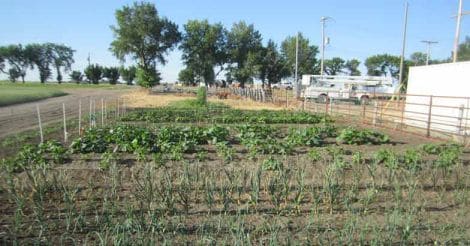 Organic farming. Photo: Saikat Kumar Basu
Organic farming. Photo: Saikat Kumar BasuThe organically developed home garden is an excellent option to create small islands of local biodiversity, providing local employment and developing self-sufficiency with respect to the supply of fodder, fuel, fertilizer, forage, and food for many communities if executed and managed properly. However, organic produce needs to be pocket-friendly to become more successful, popular and affordable for ordinary people. More research and development has to be done in this area to find better nature-based solutions to further strengthen the platform.
(The author is a Canada and India based freelance journalist specializing in global geo-political, strategic and foreign policy issues, science & technology and environment & conservation related themes.)
Also read: Call of the Wild | Columns

























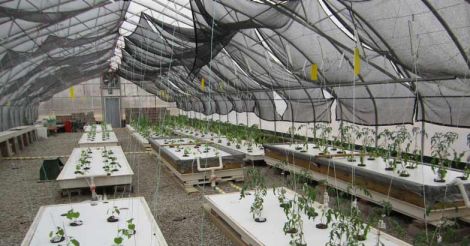 Food production for the future. Photo: Saikat Kumar Basu
Food production for the future. Photo: Saikat Kumar Basu
